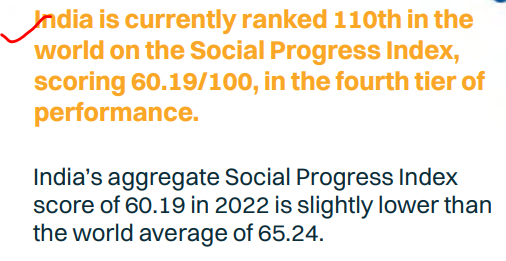Goaltide Daily Current Affairs 2022
Current Affair 1:
Scheme for Economic Empowerment of Denotified/Nomadic/Seminomadic (SEED)

About Tribes: Must read this.
The De-notified, Nomadic and Semi-Nomadic Tribes are the most neglected, marginalized and economically and socially deprived communities. Most of them have been living a life of destitution for generations and still continue to do so with an uncertain and gloomy future.
Historically, these communities never had access to private land or home ownership. These tribes used forests and grazing lands for their livelihood and residential use and had "strong ecological connections. Many of them are dependent upon various types of natural resources and carve out intricate ecological niches for their survival.
The Ministry of Social Justice & Empowerment took a decision in February, 2014 to constitute a National Commission for De-Notified, Nomadic and Semi Nomadic Tribes for a period of three years. This National Commission was constituted under the Chairmanship of Shri Bhiku Ramji Idate. This commission has given its report in December, 2017.
Based on the National Commission’s recommendations, the Ministry of Social Justice and Empowerment has constituted the Development and Welfare Board for De-notified, Nomadic and Semi-Nomadic Communities (DWBDNCs) in 2019.
The Board has been mandated to formulate and implement welfare and development programmes for these communities.
Current Affair 2:
Social Progress Index (SPI) for States and Districts
Why needed?


First Globally,

 ’ Since 2011 India has improved its score by 8.49 points, the third greatest improvement.
’ Since 2011 India has improved its score by 8.49 points, the third greatest improvement.

What is SPI?
SPI is a comprehensive tool that can serve as a holistic measure of a country's social progress at the national and sub-national levels. The index assesses states and districts based on 12 components across three critical dimensions of social progress - Basic Human Needs, Foundations of Wellbeing, and Opportunity. The index uses an extensive framework comprising 89 indicators at the state level and 49 at the district level.

Now,
The 2022 sub-national Social Progress Index for India evaluates 36 States/UTs & 707 districts.
Based on the SPI scores, states and districts have been ranked under six tiers of social progress. The tiers are Tier 1: Very High Social Progress; Tier 2: High Social Progress; Tier 3: Upper Middle Social Progress; Tier 4: Lower Middle Social Progress; Tier 5: Low Social Progress; and Tier 6: Very Low Social Progress.

Tier-I: Very High Social Progress:

Tier-II: High Social Progress

Tier-III: Upper Middle Social Progress

Tier-IV: Lower Middle Social Progress

Tier-V: Low Social Progress

Tier-VI: Very Low Social Progress

EAC-PM Chairman Bibek Debroy while releasing the report, said, “The report is based extensively on objective data and is primarily a normative/prescriptive exercise. It presents a cross-section of data across states and districts and the focus is on looking at various tiers of development by grouping the states rather than the individual rankings of the selected states and districts.”
Social Progress Index (SPI) for States and Districts made by the Institute for Competitiveness and Social Progress Imperative was submitted to Economic Advisory Council- Prime Minister and released today.
Current Affair 3:
What is the Carbon Border Adjustment Mechanism?
Designed in compliance with World Trade Organization (WTO) rules and other international obligations of the EU,
the CBAM system will work as follows: EU importers will buy carbon certificates corresponding to the carbon price that would have been paid, had the goods been produced under the EU's carbon pricing rules. Conversely, once a non-EU producer can show that they have already paid a price for the carbon used in the production of the imported goods in a third country, the corresponding cost can be fully deducted for the EU importer. The CBAM will help reduce the risk of carbon leakage by encouraging producers in non-EU countries to green their production processes.
Current Affair 4:
Scientists freeze Great Barrier Reef coral in world-first trial
News:

Scientists hope to save the Great Barrier reef by freezing and storing coral larvae. Now, scientists have made a breakthrough in a surprising new area - cryogenics.
For the first time, they’ve managed to freeze coral larvae. This could be used to ‘rewild’ the reef in future
The most important way to help the reef is to bring down global temperatures. But scientists are also looking to technology for novel ways to preserve its unique corals.
Cryogenically frozen coral can be stored and later reintroduced to the wild but the current process requires sophisticated equipment including lasers.
Scientists say a new lightweight "cryomesh" can be manufactured cheaply and better preserves coral. The mesh technology will help store coral larvae at -196C (-320.8°F).
The Great Barrier Reef has suffered four bleaching events in the last seven years including the first ever bleach during a La Nina phenomenon, which typically brings cooler temperatures.
<< Previous Next >>



